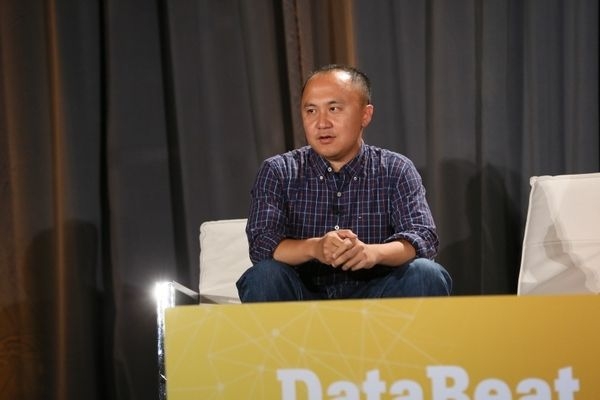Lei Feng Network Press: Zhang Ximeng, Founding & CEO of GrowingIO, former director of business analysis of LinkedIn. In 2015, he returned to China to create a data analysis product, GrowingIO, to use data to help companies achieve business growth. Recently, GrowingIO released a version 2.0 data analysis product and announced that it had won a Series A financing of US$20 million. This article is Zhang Xi's dream sharing at the conference: How do startup companies do data analysis and achieve rapid growth?

The era of "traffic is king" has ended, and Internet companies are transforming into lean operations. And doing lean operations requires a lot of data to support decision-making, which is a very big challenge for the enterprise's data collection and data analysis capabilities.
There is a large gap between China and the United States in data analysis. Data analysis can be highly valued in some of China's particularly large companies, such as BAT. Of course, this is due to their long-term accumulation and comparison of data and operations. it is good. This is the overall feeling after my return to China. Domestic companies do not have as much knowledge of the data itself and the value that data can provide. It is not as deep as the United States, and the difference is quite large.
| What kind of company needs attention data? What are the differences in different stages?In general, the current domestic companies that pay more attention to data are companies with high unit prices and heavy conversions, such as Internet finance, e-commerce, trading platforms, SaaS, and online travel companies. This type of customer has a high unit price and it is not a complete amount of traffic. This way, entrepreneurs have the motivation to increase their conversion.
On the macro level, entrepreneurs will go through 4 product life cycle stages.
The first phase is called cold start.This time the company was particularly early, angel round or round A, and even financing was not successful. Companies at this stage are driven by big data is a false proposition - because of the limited number of customers, lack of sample. They need to learn more about the needs of potential customers and "pursue" customers to use this product.
The second phase, the earlier period of growth.That is, the cold start is nearing completion. Experienced entrepreneurs will begin to lay out some core indicators related to growth, such as day/month activity and retention. The purpose of these indicators is not to measure the current performance of the product, but to have a comparable benchmark for future growth.
The third stage, the growth period.This stage can be seen as a great difference between a good startup company and an ordinary startup company—efficiency. No matter the PR or the activity, it needs labor and time cost. How to find the most efficient channel in growth? This, I think, is the core competitiveness of PK among startup companies. If you do not do data-driven, rely on intuition, once and twice, but no one can enter the casino to win 10,000 times. Therefore, intuition needs to be combined with data, so that companies can quickly optimize all channels to improve the conversion efficiency per unit of time.
The fourth stage, the realization period.Business realisation requires a very high user base. In general internet products, a small number of highly active and experienced users will be converted into paying users. Like a funnel, constantly sifting, this is the efficiency of the operation. For example, the e-commerce user's conversion funnel is generally: access - registration - search - browse - join the shopping cart - payment, or return to the future. This is a very, very long funnel. To truly do a good job in data management, it is necessary to continuously track every aspect of the funnel.
A good company, especially a company that wants to earn revenue in the future, must pay attention to the efficiency of transformation in all sectors. This conversion efficiency, the means to be achieved, can be achieved through marketing methods, product improvement methods, and even customer operations methods. Each of these links is slightly increased, adding up to a multiple of improvement. This kind of multiplication will make it difficult to realize how big it will be if you have not done data management operations.
| How good data analysis should be?
Good data analysis can benefit everyone in the company. It is not a privilege, it is not only for one or two people in the company, but it can enable the various operating departments within the company, especially the frontline departments, to benefit directly.
Normally speaking, it only talks about strategy. It only talks about general direction. It only looks to the CEO. It only looks at VPs or operations—it's not enough. Need to give it to employees working in the field, let them use it. This I think is a distinction between a data-driven enterprise and a non-data-driven enterprise. Efficiency is improved by everyone, not by one or two people.
A company that wants to build a complete data analysis mechanism should first start with the business. All data analysis operations or data systems should start from the business and from the customer. This data analysis system should not only solve a very narrow one or two problems, but also need to have a system and overall view. Then, in fact, the hardest part of data analysis is data collection and data sorting. This process is the most time-consuming. It may be because the initial plan is not enough. Therefore, we should pay great attention to data collection and data organization.
Afterwards, the data analysis cannot only be based on the statements, but the value is still not enough. In the end, after those figures come out, it is right and effective to tell others what to do. The words here are deeply learned and require strong operational skills.
So to say that a company needs to have a big picture, it must also focus on enforceability. I suggest that if a general enterprise wants to build itself, it should first break through a single point, find a conversion point, and see the value. Through this practice, learn the next practice method. This is also a learning process. Instead of building a huge system, we will put together 50 data circles to create a data science framework. I think that generally speaking, unless you have a lot of resources, it will certainly fail.

| What stages can enterprise data analysis be divided into?
In the first stage, nothing is there;
In the second stage, companies need to be able to trace back history: knowing what is happening in their products is the most basic and primitive stage;
In the third stage, people who make products, do operations, and do marketing internally need to ask why: This stage is forecasting, that is, predicting a certain group of people and what will happen next, so that it can be targeted and better Product development;
The fourth stage is to have a solution: that is, I predict that this group of people will do so, then I give it a better plan, so that it has better conversion, retention, bring about a better effect ;
The fifth stage is optimization. How can various product lines find the best balance point: There is a balance between price, marketing, product design, and sales. This balance point is the point of interest of the entrepreneur and the user The point of most like this product.
These five phases need to take time to accumulate, do not jump, jump often fail, and start from the basics.
| Why is the analysis of data in many companies in the form?This is mainly due to the lack of awareness of many companies on three levels: the value of data, data analysis methodologies and practical methods of operation.
1) Cognition of ValueMany companies are in a period of frenzied growth, and the decisions that people make in their minds may have generated a lot of value; in this case, they find it difficult to realize that data decisions can generate more value than violent growth.
2) Cognition of basic methodologyIt means a core but simple methodology. At present, China does not have much knowledge of the basic methodology. It may be because domestic development time is still relatively short, and the United States has been developing for several decades.
3) Cognition of actual operation methodsDomestic front-line employees use data to guide work operations, such as relatively few practical operating experiences such as products, customers, and sales. On the one hand, because of the short development time, on the other hand, the accumulation of data use concepts is relatively small.
However, domestic companies have been rapidly raising this awareness. However, this recognition is a gradual, step-by-step process. In the United States, cognition and methodology have slowly been well-unified - between technology and business, using data to fuse.
Many domestic entrepreneurs are initially unaware of the value of data; when they realize the value of data, their expectations are often high. This big gap can't make real value come true. It even makes people question whether "this value can really be realized." It lacks patience.

I think that domestic companies' understanding of data analysis is divided into two poles: one is that this is pure technology, and the other is that it is more superstitious, thinking that as soon as big data is available, it becomes a tall company. I think there are certain misunderstandings in these two ways.
At the core, I think that you can do something worthwhile and have no effect? Measured by the effect is the most direct. Some other companies want to build their own platform, build a large team, and have relatively low efficiency and output. I suggest that everyone should be cautious. With the continuous development of the ecosystem, many tools are now very useful. You have to learn to use tools. This is a very good aid for entrepreneurs to succeed - it cannot be said that because you use tools, you start a business successfully; but good entrepreneurs must be able to use these various tools to achieve their goals.
| How to break the cycle of data can not be "useful"?In the past few months, we have dealt with customers and found that some companies use our products very well, and some companies generally. Usually there are people who have core data in their hands and they will use them very well. Some companies don't have the core people to follow this matter and they do it more generally.
So, in the operations department, at least one person has a certain concept of data analysis. It's as if we've moved a set of advanced surgical instruments to the company, and if no one can do it, it will not work.
I think the best way to get knowledge is to practice. The premise of actual operation is that it is better to have someone who knows a little bit and can take it several times. Then turn it up and learn it. This is the fastest and most effective way to acquire data analysis knowledge. I don't feel like reading books or reading textbooks. Looking at some of the big-data-oriented books in the outside world can have this effect.
With this person, the methodological support can be obtained from those who understand this aspect and the company's products. This learning mechanism has been established. This is still very important. Otherwise, although the system is powerful, no one can operate it, and it will not be able to use it for its best.
Lei Fengwang Note: This article was organized by "Jingwei Venture Capital", edited by GrowingIO, and Lei Feng Network (searched by "Lei Feng Net" public number concerned) made adjustments that did not change the original meaning. Reprint Please retain the full information, not to delete the content.